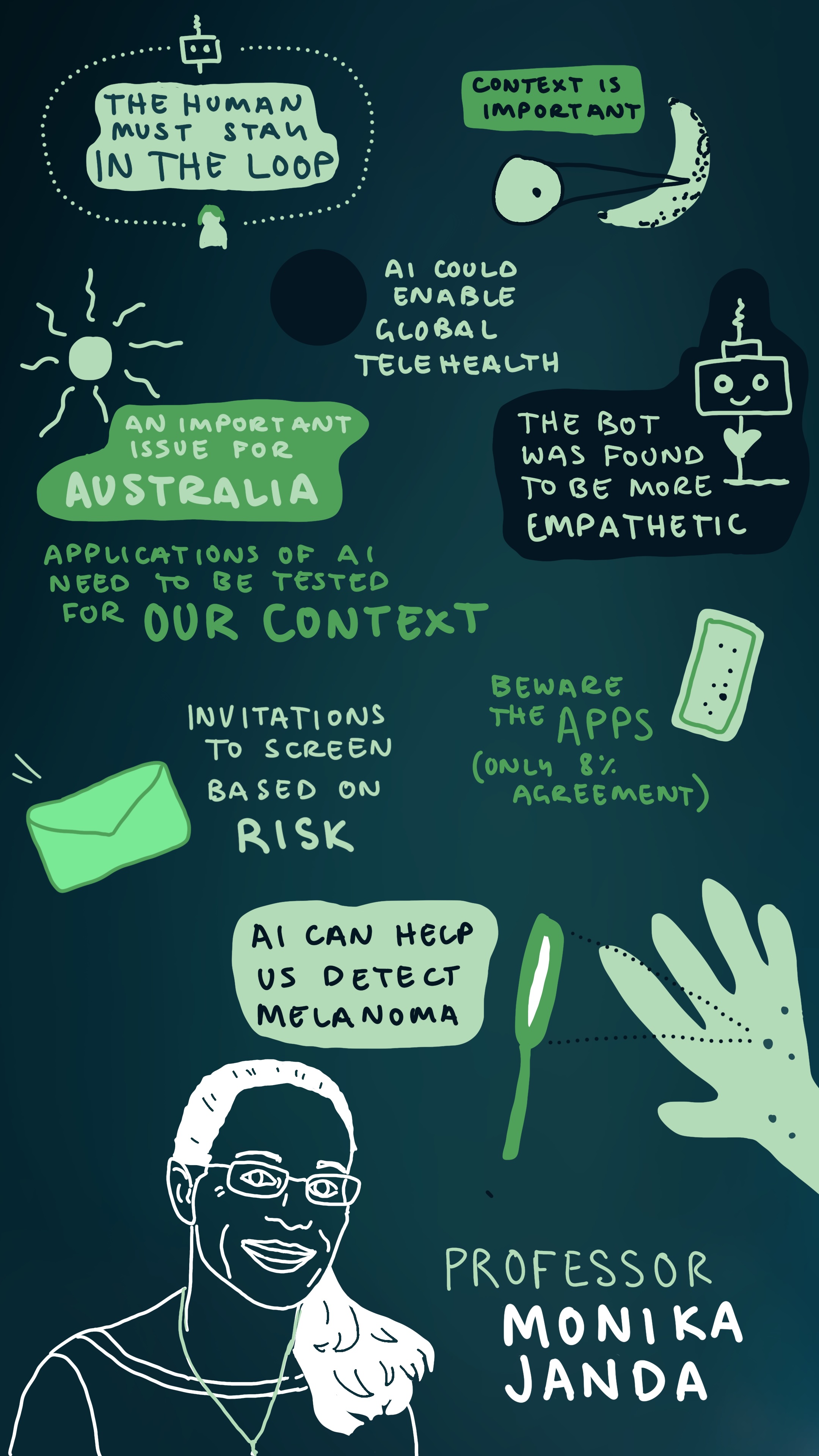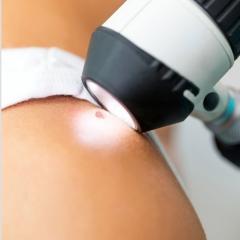Professor Monika Janda was recently invited to speak at an event hosted by the Australian Academy of Science, as part of their AI in Science: The Promise, Perils and Path Forward series. Her talk, titled "The Future of Melanoma Early Detection: Harnessing the power of Artificial Intelligence", explored how AI is set to revolutionise the way we detect, monitor, and manage skin cancer in Australia.
 | 1. Personalised AI ScreeningAI can assess individual risk factors—like skin type, sun exposure, and medical history—to offer tailored screening invitations and identify high-risk individuals earlier. 2. Advanced Imaging TechnologiesAdvanced 2D and 3D imaging devices with 92 cameras create full-body digital avatars, enabling AI to track skin changes over time and assist clinicians in early melanoma detection. 3. Human-in-loopWhile AI offers strong pattern recognition, Professor Janda stressed the importance of keeping clinicians in the loop for expert judgement and context. 4. Teledermatology and AccessibilityAI-powered imaging and teledermatology can extend specialist care to rural areas, helping deliver more equitable skin cancer screening across Australia. |
To hear the full presentation and learn more about how AI is reshaping skin cancer detection, watch the full video here.



